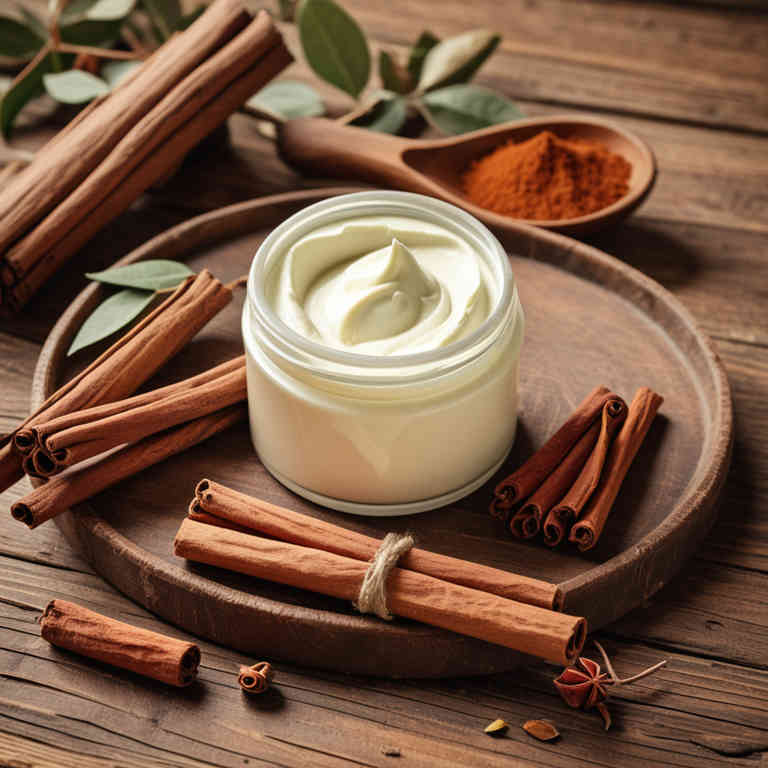10 Best Cinnamomum Zeylanicum Preparations

The best medicinal preparations of Cinnamomum zeylanicum are teas, decoctions, tinctures, essential oils, and creams, each offering unique therapeutic benefits.
Teas made from cinnamon bark are commonly used to aid digestion and soothe respiratory issues.
Decoctions involve simmering the bark to extract its active compounds, enhancing its warming properties.
Tinctures provide a concentrated form of the herb for internal or topical use, while essential oils are valued for their aromatic and antiseptic qualities.
Creams infused with cinnamon are often applied to relieve muscle pain and improve circulation.
Below there's a list of the 10 best herbal preparations of cinnamomum zeylanicum for medicinal purposes.
1. Teas
Cinnamomum zeylanicum teas is commonly used to support digestive health, reduce inflammation, and manage blood sugar levels.
This herbal preparation is often employed to treat ailments such as indigestion, nausea, diabetes, and respiratory infections. The most common medicinal uses include alleviating symptoms of colds, flu, and coughs, as well as promoting cardiovascular health. The bioactive constituents responsible for these effects include cinnamic acid, eugenol, and various polyphenols, which exhibit antioxidant, anti-inflammatory, and antimicrobial properties.
These compounds contribute to the tea's ability to support overall wellness and treat a range of health conditions.

2. Decoctions
Cinnamomum zeylanicum decoctions is commonly used to treat ailments such as digestive issues, respiratory infections, and inflammation.
These decoctions are frequently employed in traditional medicine to alleviate symptoms of colds, coughs, and gastrointestinal disorders like indigestion and nausea. The preparation involves boiling the bark of the cinnamon tree to extract its active compounds. The bioactive constituents include cinnamaldehyde, cinnamic acid, and essential oils, which possess antimicrobial, anti-inflammatory, and antioxidant properties.
These compounds contribute to the plant's ability to support immune function and reduce inflammation in the body.

3. Tinctures
Cinnamomum zeylanicum tinctures is commonly used to treat ailments such as digestive issues, respiratory infections, and skin conditions.
These tinctures are often utilized for their antimicrobial, anti-inflammatory, and antioxidant properties. The most common medicinal uses include alleviating symptoms of colds, flu, and gastrointestinal discomfort. Bioactive constituents such as cinnamaldehyde, eugenol, and polyphenols are responsible for the therapeutic effects of the tinctures.
These compounds contribute to its ability to reduce inflammation, fight infections, and support overall wellness.

5. Creams
Cinnamomum zeylanicum creams is commonly used to treat various skin conditions and inflammatory disorders due to its antimicrobial, anti-inflammatory, and analgesic properties.
These creams are frequently applied for ailments such as eczema, psoriasis, and minor burns, as well as for relieving muscle pain and joint inflammation. The most common medicinal uses include reducing skin irritation, soothing itching, and promoting wound healing. The bioactive constituents responsible for these effects include cinnamaldehyde, eugenol, and essential oils, which exhibit antimicrobial, antioxidant, and anti-inflammatory activities.
These compounds work synergistically to provide the therapeutic benefits associated with cinnamon-based herbal preparations.

6. Syrups
Cinnamomum zeylanicum syrups is commonly used to treat respiratory conditions, digestive issues, and as a general tonic to improve overall health.
The most common medicinal uses include alleviating symptoms of coughs, colds, asthma, and gastrointestinal disorders such as indigestion and nausea. It is also used to support metabolic functions and enhance circulation. The bioactive constituents responsible for its medicinal properties include cinnamaldehyde, eugenol, and essential oils, which possess antimicrobial, anti-inflammatory, and antioxidant effects.
These compounds contribute to its ability to reduce inflammation, fight infections, and support immune function.

7. Capsules
Cinnamomum zeylanicum capsules is commonly used to support digestive health, alleviate symptoms of colds and flu, and manage blood sugar levels.
They are frequently employed to treat ailments such as indigestion, nausea, respiratory infections, and diabetes. The most common medicinal uses include reducing inflammation, improving circulation, and supporting immune function. The bioactive constituents responsible for these effects include cinnamaldehyde, eugenol, and essential oils, which possess antioxidant, antimicrobial, and anti-inflammatory properties.
These compounds contribute to the plant's ability to address various health conditions.

8. Lozenges
Cinnamomum zeylanicum lozenges is commonly used to alleviate symptoms of respiratory and oral infections, such as sore throat, cough, and inflammation.
These lozenges are often employed to treat ailments like colds, bronchitis, and gum disease due to their antimicrobial and anti-inflammatory properties. The bioactive constituents responsible for these effects include cinnamaldehyde, eugenol, and essential oils, which possess antioxidant, antiseptic, and analgesic qualities. Additionally, these compounds may help reduce inflammation and soothe irritated tissues in the throat and mouth.
The combination of these properties makes Cinnamomum zeylanicum lozenges a popular choice in traditional and complementary medicine.

9. Oils
Cinnamomum zeylanicum oils is commonly used to treat digestive issues, respiratory infections, and skin conditions due to its antimicrobial and anti-inflammatory properties.
The most common medicinal uses include alleviating symptoms of colds, flu, and bronchitis, as well as reducing inflammation and pain in conditions like arthritis. It is also used topically to address fungal infections and to promote wound healing. The bioactive constituents responsible for these effects include cinnamaldehyde, eugenol, and linalool, which possess antimicrobial, antioxidant, and anti-inflammatory activities.
These compounds work synergistically to provide the therapeutic benefits associated with cinnamon oil.

10. Juices
Cinnamomum zeylanicum juices is commonly used to treat digestive issues, respiratory infections, and skin conditions.
It is often employed to alleviate symptoms of indigestion, nausea, and coughs due to its anti-inflammatory and antimicrobial properties. The juice is also used topically to reduce inflammation and promote wound healing. The most common medicinal uses include treating gastrointestinal disorders, colds, and skin infections.
Bioactive constituents such as cinnamic acid, eugenol, and other volatile oils contribute to its therapeutic effects.
